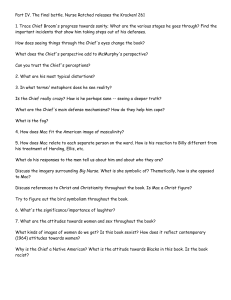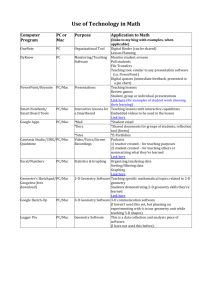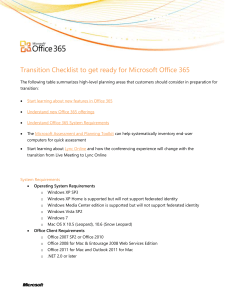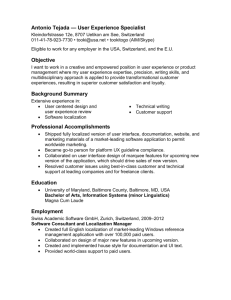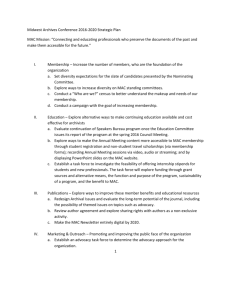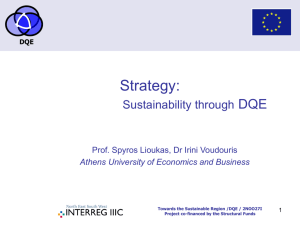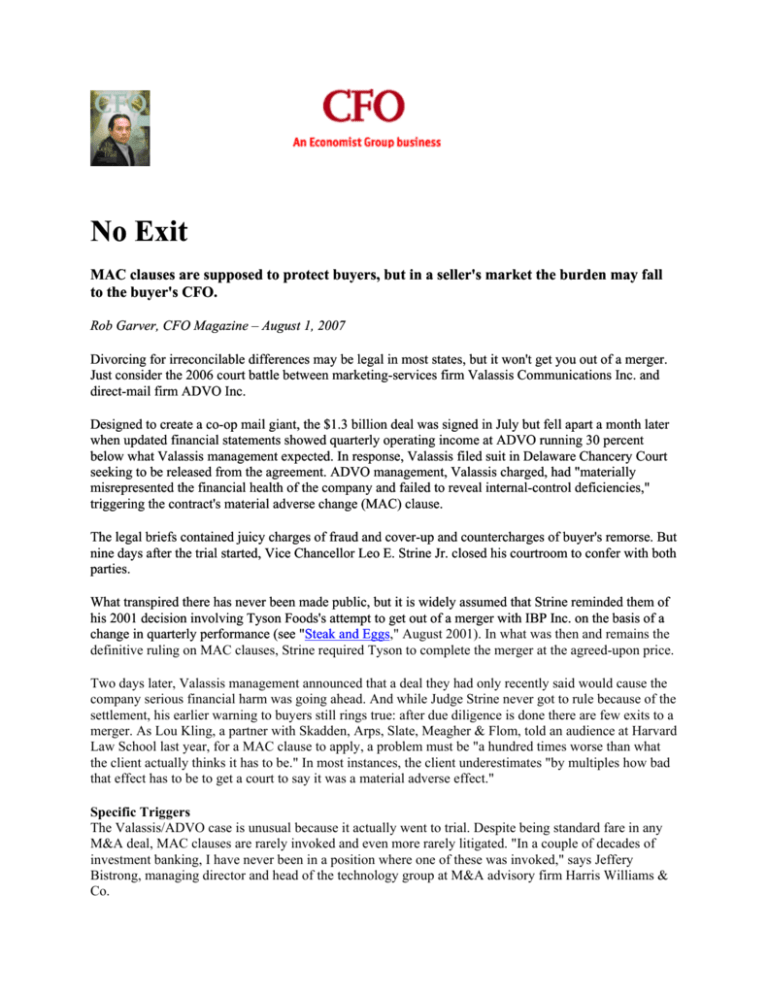
No Exit
MAC clauses are supposed to protect buyers, but in a seller's market the burden may fall
to the buyer's CFO.
Rob Garver, CFO Magazine – August 1, 2007
Divorcing for irreconcilable differences may be legal in most states, but it won't get you out of a merger.
Just consider the 2006 court battle between marketing-services firm Valassis Communications Inc. and
direct-mail firm ADVO Inc.
Designed to create a co-op mail giant, the $1.3 billion deal was signed in July but fell apart a month later
when updated financial statements showed quarterly operating income at ADVO running 30 percent
below what Valassis management expected. In response, Valassis filed suit in Delaware Chancery Court
seeking to be released from the agreement. ADVO management, Valassis charged, had "materially
misrepresented the financial health of the company and failed to reveal internal-control deficiencies,"
triggering the contract's material adverse change (MAC) clause.
The legal briefs contained juicy charges of fraud and cover-up and countercharges of buyer's remorse. But
nine days after the trial started, Vice Chancellor Leo E. Strine Jr. closed his courtroom to confer with both
parties.
What transpired there has never been made public, but it is widely assumed that Strine reminded them of
his 2001 decision involving Tyson Foods's attempt to get out of a merger with IBP Inc. on the basis of a
Eggs August 2001). In what was then and remains the
change in quarterly performance (see "Steak and Eggs,"
definitive ruling on MAC clauses, Strine required Tyson to complete the merger at the agreed-upon price.
Two days later, Valassis management announced that a deal they had only recently said would cause the
company serious financial harm was going ahead. And while Judge Strine never got to rule because of the
settlement, his earlier warning to buyers still rings true: after due diligence is done there are few exits to a
merger. As Lou Kling, a partner with Skadden, Arps, Slate, Meagher & Flom, told an audience at Harvard
Law School last year, for a MAC clause to apply, a problem must be "a hundred times worse than what
the client actually thinks it has to be." In most instances, the client underestimates "by multiples how bad
that effect has to be to get a court to say it was a material adverse effect."
Specific Triggers
The Valassis/ADVO case is unusual because it actually went to trial. Despite being standard fare in any
M&A deal, MAC clauses are rarely invoked and even more rarely litigated. "In a couple of decades of
investment banking, I have never been in a position where one of these was invoked," says Jeffery
Bistrong, managing director and head of the technology group at M&A advisory firm Harris Williams &
Co.
But the rarity of their exercise only underscores the gravity of the situation they address: a collapsing deal
with potentially enormous repercussions for both parties. "This is one of the most important clauses in the
contract because both sides get hurt if the deal blows up, but usually the seller gets hurt much more," says
H. Rodgin Cohen, chairman of law firm Sullivan & Cromwell in New York.
For that reason, sellers are particularly anxious to grab every advantage they can. This is borne out by a
recent Nixon Peabody study that found the seller's market of the past several years has further tilted MAC
clauses in their favor. "It comes and goes, depending on whether you have a buyer's market or a seller's
market," says Martha M. Anderson, a partner in the law firm's mergers-and-acquisitions practice. And the
reality, says Darrell W. Crate, CFO of Affiliated Managers Group in Pride's Crossing, Massachusetts, is
that "we are in a time where it is a frothy credit market, and sellers have more power than buyers."
To protect that advantage, sellers have increasingly wrapped themselves in "exceptions" — outlying
events that the parties agree will not be considered a MAC for purposes of the contract. According to
Nixon Peabody, both the number and type of exceptions in MAC clauses were significantly higher in the
year ending in June 2006 than in the preceding 12 months. Among the more common were acts of war or
terrorism, changes in laws or regulations, and the impact that the announcement of the deal itself has on
the seller's business. For instance, in one pending deal, the effort of a consortium led by the Royal Bank
of Scotland to purchase ABN AMRO carries a clause specifically excluding any material adverse change
suffered by ABN AMRO as a result of the breakup of its previous agreement to sell its subsidiary,
LaSalle Bank, to Bank of America.
Sellers have also been helped by the courts, which have made it clear that there is an increasing burden on
buyers to enumerate exactly what will be considered material adverse changes. In 2005, for example,
Holly Corp.'s effort to invoke the MAC clause was denied by the Delaware Chancery Court because the
company didn't specifically enumerate that a specific event (in this case, initiation of a "toxic tort" case
against target Frontier Oil by famed consumer activist Erin Brockovich) would constitute an adverse
change in the target's status. (Holly was allowed to escape the merger, but on grounds unrelated to the
MAC.)
In another case, a Massachusetts court rejected a shareholder lawsuit in 2000 challenging Excell Data
Corp.'s acquisition of Cambridge Technology Partners. Excell shareholders claimed that Cambridge
management had falsely claimed it was on track to meet analysts' expectations in an upcoming earnings
report, despite knowing it would fail to do so. The judge ruled, however, that Cambridge had not
triggered the MAC clause, because "[b]y the parties' express agreement, Cambridge's warranties only
covered the accuracy of representations about its current operations, not its future prospects."
Buyer's Burden
With the playing field so tilted toward sellers, the burden on acquisitive CFOs is significant when it
comes to the MAC-clause negotiation. The CFO of the acquiring company must be closely involved in
drafting the MAC clause, Anderson says, since he or she understands the seller's operations so well. "The
CFO has got to be in touch with the legal team and communicate to its members what is driving the deal,"
she says, adding that they must also ensure that purchase-price adjustments, financial and tax provisions,
and similar terms are accurate and workable given the manner in which the company reports its
financials.
The buyer's CFO should also insist that MAC clauses protect against specific events that, while not
appearing "material" to a judge considering the totality of the target company, would be significant
enough to make the deal uneconomical. And that requires the buying CFO to play soothsayer to a certain
extent.
In a 2003 deal involving the sale of Pittsburgh-based utility DQE Inc.'s AquaSource subsidiary to Bryn
Mawr, Pennsylvania-based Aqua America Inc., Aqua America insisted on language in the MAC that
would guarantee compliance with key performance metrics during the period between signing and
closing. "The purpose of the MAC clause is to protect, during the holding period, that shareholder value
you expect the acquisition to generate," says CFO Dave Smeltzer.
Despite initial resistance, DQE agreed to the terms of the MAC, and the deal went forward. That gave
Aqua America executives some measure of protection while waiting for regulatory clearance, a process
that, in the merger of public utilities, can take up to a year. The lesson, says Smeltzer, is that buyers need
to be ready to draw a line around certain potential events and occurrences that could turn a good deal into
a bad one. "If they really want to sell, and they understand that this is a dealbreaker for us, the deal will
get done," he says.
Making It Work
DQE's resistance, however, is somewhat understandable: it was one of the few companies to actually use
a MAC to bust a deal. When the company agreed to merge with Maryland-based Allegheny Energy Inc.
in 1997, part of the contract included a provision stating that if regulatory action had an effect on one
company that "exceeded the effect" of the action on the other, the MAC clause could be triggered.
Later that year, a restructuring of public utilities in Pennsylvania resulted in Allegheny having to take a
$450 million accounting write-off, while DQE wrote down only $142 million. DQE invoked the MAC
and, despite opposition from Allegheny, convinced a judge in federal district court that the MAC had
indeed been triggered.
Such an outcome is unlikely today, since sellers have the leverage to guarantee exceptions to most
potentially threatening MACs. In fact, according to Nixon Peabody's study, one of the most frequently
found exceptions in major deals is one ruling out regulatory changes — such as the one that sank the
DQE/Allegheny deal — as a MAC-clause trigger. For example, the outcome of the much-publicized deal
in which a consortium led by New York–based private-equity firm J.C. Flowers & Co. agreed to purchase
SLM Corp. (Sallie Mae) for $26 billion was thrown into doubt in July when J.C. Flowers announced that
proposed legislation to cut student-loan subsidies might trigger the MAC clause, busting the deal.
That case notwithstanding, MACs need not always be bad news for buyers, says Michael S. Roberts, a
partner with Connelly Roberts & McGivney, a boutique M&A practice in Chicago. "If the change falls
into a gray area, the buyer probably won't want to walk away," he says. Besides, he adds, "the change will
also be a problem for any other potential buyers, [so] it offers some leverage to renegotiate the terms."
Which brings us back to Valassis and ADVO. In the two days following the conference with Vice
Chancellor Strine, the principals renegotiated the purchase price of ADVO, allowing Valassis to close the
deal at $33 per share — about $100 million less than originally planned. Nine months later, say analysts
who follow the company, Valassis is arguably much better off than it would have been if the deal fell
through.
The MAC clause may not have allowed Valassis an easy escape, but by creating a forum for
renegotiation, it allowed the transaction to go forward at a price the company and its creditors were
confident the new entity could support. "My sense is that much of what Valassis had hoped would be
there with ADVO actually is there, in terms of cost savings," says Troy Mastin, an analyst with William
Blair & Co. in Chicago. "In the long term, they are probably in a better place."
Rob Garver is a freelance writer based in Virginia.
Breaking Up
The biggest busted deals of 2007 so far
Target
Acquirer
Equity Office
Properties Trust
Investor
group
Caremark Rx
Express
Scripts
Delta Air Lines
US
Airways
Group
Value of
Date
Deal
Withdrawn ($ billions)
Reason
38
Private-equity firm The Blackstone Group won the
final bid due to a quicker closing time from
Blackstone.
March 16
24
Antitrust concerns over merging the two pharmacybenefit managers resulted in Caremark accepting a
$26.4 billion buyout from CVS.
January 30
17.9
February 2
US Airways withdrew its $10.2 billion bid because
Delta's creditors disapproved of the deal.
Mills
Brookfield
Asset
Mgmnt.
February 2
6.3
Brookfield was outbid by Simon Property Group and
Farallon Capital Management to purchase the
shopping-mall owner in a $7.9 billion deal.
Reckson
Associates Realty
American
Re
Partners
January 25
6.2
American Re Partners lost a bidding war to SL Green
Realty for $6 billion.
Triad Hospitals
Investor
group
March 19
Sources: Thomson Financial, various news reports
6
Community Health Systems outbid a previous
merger agreement with affiliates of CCMP Capital
Advisors and GS Capital Advisors.
© CFO Publishing Corporation 2008. All rights reserved.

